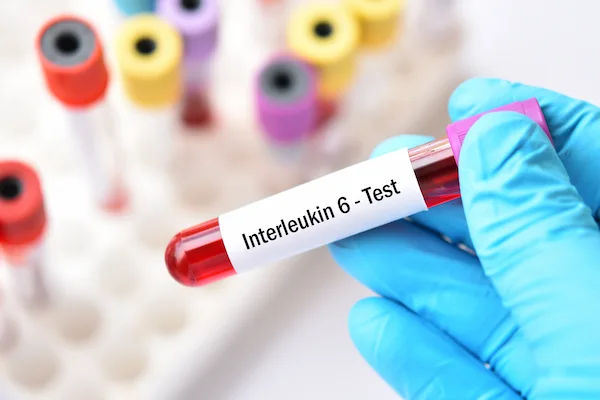Your Guide to Mental Health: 10 Science-Backed Tips for a Calmer Mind
Know about mental health, practice mindfulness and meditation, sleep hygiene, gut-brain connection and more.

Written by Dr. M L Ezhilarasan
Reviewed by Dr. Rohinipriyanka Pondugula MBBS
Last updated on 13th Jan, 2026

Introduction
Mental health is the bedrock of our overall well-being, influencing how we think, feel, and interact with the world. It's not merely the absence of mental illness but the presence of resilience, purpose, and joy. In today's fast-paced world, prioritising your mental health is no longer a luxury—it's a necessity. Just as we exercise to keep our bodies fit, our minds require consistent care and nurturing. This comprehensive guide moves beyond simple platitudes to offer you 10 science-backed, actionable strategies to build a more robust and peaceful state of mind. We'll explore everything from the profound power of connection and movement to the vital roles of sleep, nutrition, and knowing when to seek professional guidance. Consider this your roadmap to cultivating a healthier, happier you.
Prioritise Meaningful Social Connections
Human beings are inherently social creatures. Our brains are wired for connection, and strong, positive relationships are one of the most powerful predictors of good mental health. Loneliness, on the other hand, can be as detrimental to health as smoking 15 cigarettes a day, linked to increased risks of depression, anxiety, and cognitive decline.
The Loneliness Epidemic and Your Brain
Feeling isolated triggers our body's stress response, flooding our system with cortisol. Chronic loneliness keeps this system activated, leading to inflammation and negatively impacting nearly every bodily system. Meaningful connection acts as a buffer, providing emotional support, a sense of belonging, and a different perspective on our problems.
Quality Over Quantity: Building Your Support System
It's not about having hundreds of friends on social media. Focus on cultivating a few deep, authentic relationships. This could be family members, close friends, or members of a community group or club. Make a conscious effort to schedule regular catch-ups, whether it's a weekly phone call, a coffee date, or joining a book club. Remember, vulnerability is key sharing your feelings with someone you trust is a cornerstone of emotional well-being.
Health topic carousel:
Doctor's speciality: Psychologist
Text: Consult a Psychologist for Personalised Advice
Love Your Body, Boost Your Mind: The Exercise Effect
You likely know that exercise is good for your physical body, but its impact on your mental health is equally profound. Physical activity is a potent, natural antidote to stress, anxiety, and depression.
How Exercise Acts as a Natural Antidepressant
When you exercise, your body releases endorphins, often called "feel-good" chemicals, which act as natural painkillers and mood elevators. It also reduces levels of stress hormones like adrenaline and cortisol. Furthermore, regular exercise promotes neural growth, reduces inflammation, and creates patterns of activity that calm the brain. Studies have shown that regular exercise can be as effective as medication for treating mild to moderate depression.
Finding an Activity You Actually Enjoy
The best exercise is the one you'll stick with. You don't need to train for a marathon. A daily 30-minute brisk walk, a dance session in your living room, gardening, swimming, or a yoga class can all yield significant benefits. The goal is to move your body in a way that feels good, making it a sustainable part of your routine for long-term stress management.
Master Your Mind Through Mindfulness and Meditation
Our minds are often caught in the past (regret) or the future (worry). Mindfulness is the practice of gently anchoring your awareness to the present moment without judgment. This simple shift can dramatically reduce anxiety and improve your emotional regulation.
Breaking the Cycle of Anxious Thoughts
Rumination, repetitively going over a thought or problem, is a key feature of anxiety and depression. Mindfulness meditation teaches you to observe these thoughts as passing mental events rather than absolute truths. You learn to say, "I'm having the thought that I'm not good enough," instead of "I am not good enough." This creates psychological distance and reduces the thought's power.
Simple Mindfulness Practices for Beginners
You don't need to meditate for hours. Start with just 5-10 minutes a day. Apps like Headspace or Calm can guide you. You can also practice mindfulness informally: fully focus on the taste of your food, the sensation of water on your skin during a shower, or the feeling of your feet on the ground during a walk. These small practices rewire your brain for greater calm and focus.
The Foundation of Mental Wellness: Sleep Hygiene
Sleep and mental health are deeply intertwined. Think of sleep as your brain's essential maintenance period. During sleep, it processes emotions, consolidates memories, and clears out toxins. Skimping on sleep is like skipping this crucial maintenance, leaving you emotionally fragile and cognitively impaired.
The Vicious Cycle of Poor Sleep and Stress
Stress and worry can lead to insomnia, and the resulting fatigue then impairs your ability to cope with the next day's stressors, creating a vicious cycle. Chronic sleep problems are a significant risk factor for the development of conditions like major depression.
Creating a Restful Bedtime Ritual
Good sleep hygiene is about habits. Aim for 7-9 hours of quality sleep. Create a ritual: power down electronic devices an hour before bed (the blue light disrupts melatonin production), ensure your room is dark, cool, and quiet, and avoid caffeine and large meals late in the day. A consistent sleep schedule, even on weekends, is one of the most effective ways to improve sleep quality.
Fuel Your Brain: The Gut-Brain Connection
The food you eat directly impacts the structure and function of your brain and, ultimately, your mood. The burgeoning field of nutritional psychiatry focuses on using diet as a tool to support mental health.
Foods That Fight Inflammation and Boost Mood
A diet high in processed foods, sugar, and unhealthy fats can promote inflammation, which has been linked to higher rates of depression and fatigue. Conversely, a whole-foods diet rich in fruits, vegetables, lean proteins, and healthy fats provides the essential building blocks for brain health. Omega-3 fatty acids (found in fatty fish like salmon and walnuts) are crucial for brain function and have been shown to reduce symptoms of depression.
Nutrients Essential for Neurotransmitter Production
Your brain needs specific nutrients to produce neurotransmitters like serotonin and dopamine, which regulate mood. For example, tryptophan (found in turkey, eggs, and cheese) is a precursor to serotonin. B vitamins, zinc, and magnesium are also vital. If you suspect a deficiency might be impacting your mood, a simple blood test can provide answers. Apollo24|7 offers convenient home collection for tests like vitamin D or HbA1c, making it easy to check your levels from the comfort of your home.
Conclusion
Improving your mental health is a journey, not a destination. It's about building a toolkit of sustainable habits like connection, movement, mindfulness, and proper rest that work together to create a foundation of resilience. There will be good days and challenging days, and that's perfectly normal. The goal isn't perfection but progress. Be patient and compassionate with yourself as you integrate these science-backed tips into your life. If you find that your struggles are persistent and interfering with your daily life, remember that you don't have to navigate them alone.
Health topic carousel:
Doctor's speciality: Psychologist
Text: Consult a Psychologist for Personalised Advice
Frequently Asked Questions (FAQs)
1. What are the first signs of poor mental health?
A.Early signs can include persistent sadness or irritability, extreme mood swings, social withdrawal, significant changes in eating or sleeping patterns, low energy, difficulty concentrating, and losing interest in activities you once enjoyed.
2. How can I tell if I need therapy?
A.Consider therapy if your emotional state is consistently impacting your work, relationships, or daily functioning; if you're relying on unhealthy coping mechanisms (like substance use); or if you simply feel stuck and unable to move past certain issues on your own. Consulting a doctor online with Apollo24|7 can be a great first step for an initial evaluation.
3. I'm too busy to meditate or exercise. What can I do?
A.Start micro. Mindfulness can be practised for one minute while breathing deeply at your desk. Exercise can be a 10-minute walk during your lunch break. The key is consistency, not duration. Integrate small moments of self-care practices into your existing routine.
4. Can diet really affect anxiety and depression?
A.Absolutely. Research in nutritional psychiatry shows a strong link between a poor diet and worsened mood, and between a healthy, balanced diet and reduced symptoms of depression and anxiety. The gut-brain axis is a real and powerful connection.
5. How do I help a loved one who is struggling with their mental health?
A.Approach them with empathy and without judgment. Listen more than you talk. Let them know you care and are there for them. Encourage them to talk to a professional and offer to help them find resources or even accompany them to an appointment.




